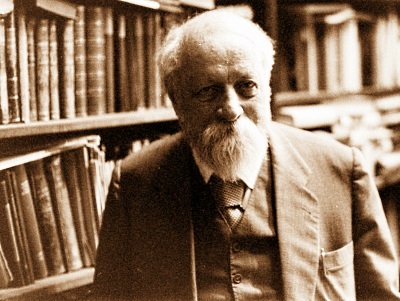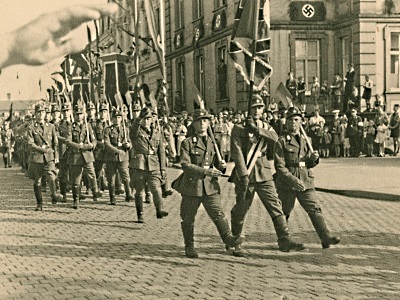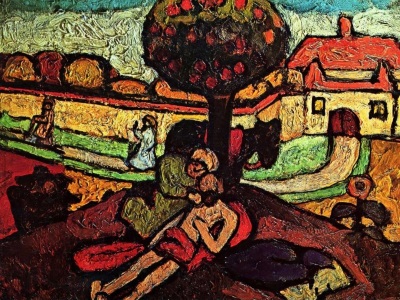The above image is of members the Geringshof, a Jewish community located close to the Rhön Bruderhof.
In addition to its own principles, the Bruderhof’s diverse contacts with Jews ensured that its members were repulsed by the anti-Semitic aims of the National Socialist regime. They lived in an area with a significant Jewish population, and Eberhard sent his children to visit the local synagogue as part of their religious education and developed in them a deep respect for Judaism and its foundation, the Hebrew Bible / Old Testament, and especially Mosaic law.
Another feature of the neighborhood was the Gehringshof estate in the immediate vicinity of the Rhön Bruderhof. Founded in 1930, it served as a center for “young Jews to retrain as farmers,” to adopt the phrase used by the Gestapo, who closely observed it. The farm aimed to equip Jews to emigrate to Palestine, and thirty to forty individuals completed the agricultural training course each year. The Gehringshof was also a center for religious Jews – “an island for intensive Jewish life.” The minutes of a Bruderhof meeting suggest multiple visits between the two communities and speak of a shared sense of purpose: “We sensed a strong drive to implement socialist ideals and this created a sense of camaraderie in us regarding the Zionists.”
Bruderhof members’ personal relationships with Jews included Martin Buber, who had stayed in the community as a guest and corresponded with Eberhard Arnold in the 1920s. For some years the community’s lawyer was Elkan Sondheimer, who came from a well-known Jewish family. His son Fritz (Friedel) Sondheimer, who had mild physical and mental impairments, was taken in by the Bruderhof around 1930.
The intimate contact with Jewish families that resulted from this situation not only made the members more sensitive to anti-Semitic hate speech but also gave them glimpses into a reality that was not visible to many other people at that time. When several members of the Rhön Bruderhof visited the Sondheimer family in 1933, they found the family understandably afflicted by “an extremely dreadful depression.” In such circumstances, anti-Semitism lost the character of an abstract ideology and became an urgent question of solidarity with their neighbors.
The members also followed the fate of the Jewish industrialist Max Wolf, who was arrested and dispossessed in 1933. They had been in contact with him since at least 1921, when Eberhard Arnold wrote to him about the Bruderhof’s publication of a book on race and politics by Julius Goldstein. In the introduction, Goldstein writes that “the soul of the German people owes some of its best characteristics to the Jews,” and calls, in the book’s “resolution,” for “a clear decision”:
Either: One can confess allegiance to [...] racial anti-Semitism. This represents a decision for a paganism that is more a poly-demonism then polytheism. [...] Or: One can confess allegiance to the eternal principles of the biblical religions, as they have evolved [...] in the systems of the great German thinkers [...]. There is no third alternative.
It is unknown whether this book was still in stock in 1933. Certainly, the community in the Rhön would have had a copy for their own use, at least until the raid in the fall of 1933, and may well have referred to it often in the context of their resistance to racial anti-Semitism and National Socialist neo-paganism.
Adapted from an unpublished translation of Thomas Nauerth’s book, Zeugnis, Liebe und Widerstand: Der Rhönbruderhof 1933-1937.


